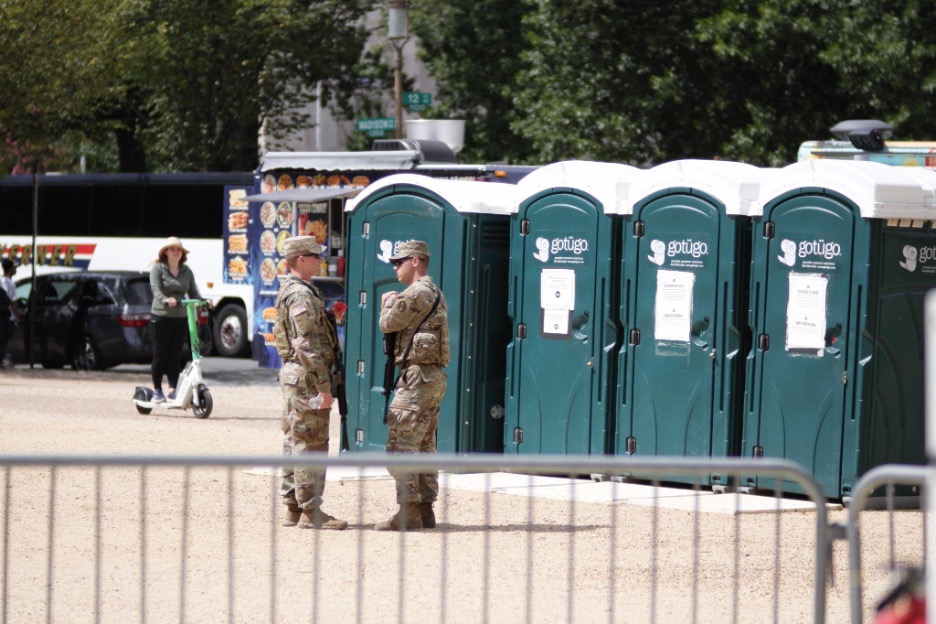How Congress Should Fight Election Interference
Our Founders were well aware of the dangers of foreign influence. In his presidential farewell address, George Washington cautioned that, “Against the insidious wiles of foreign influence . . . a free people ought to be constantly awake.” But we fell asleep: Russian influence in the 2016 election was a stunning reminder of what can happen when a nation lets its guard down.
Published by The Lawfare Institute
in Cooperation With

Our Founders were well aware of the dangers of foreign influence. In his presidential farewell address, George Washington cautioned that, “Against the insidious wiles of foreign influence . . . a free people ought to be constantly awake.” But we fell asleep: Russian influence in the 2016 election was a stunning reminder of what can happen when a nation lets its guard down.
At this point, we do not know how the congressional and FBI investigations into Trump surrogates—including former Trump campaign manager Paul Manafort, ousted national security advisor Michael Flynn, Carter Page, Roger Stone, and Jared Kushner—will end. However, we do know that Russia planned, and committed, a brazen assault on our democracy that succeeded beyond their wildest imaginations. As our recently released report, “The Last Straw: Responding to Russia’s Anti-Western Aggression,” notes, Congress should now take concrete steps to guard against efforts by Russia, or any country, to interfere in another U.S. election. In this post, I highlight three pieces of draft legislation designed to ensure Congress does just that.
First, we must tighten the foreign propaganda spigot. Under current U.S. law, media outlets like Russia Television (RT) network don’t have to register as foreign agents even though the network is funded by the Russian government and clearly serves as a government mouthpiece. This is because a loophole in our laws allows RT to classify as a benign non-political outfit—like the Red Cross. The Foreign Agents Modernization and Enforcement Act, a draft bill sponsored by Senators Jeanne Shaheen (D-NH) and Todd Young (R-IN), would go a long way in addressing this problem. The bill gives the Justice Department the authority to investigate organizations like RT and to demand information on their funding sources and foreign connections.
Second, Congress must shine a bright light on lobbyists who work for foreign governments. Right now, lobbyists who represent foreign governments must register in the United States under the stringent Foreign Agent Registration Act, or FARA. But the law contains a significant exception for those who represent a foreign company. These lobbyists are instead governed by the same lax laws that bind lobbyists for domestic companies like, say, Tyson’s Chicken. That may make sense when the foreign company is Toyota, but not when the company is Inovo BV and actually lobbying to further the interests of the Turkish government, as Flynn did.
The “Close the Foreign Lobbying Loophole Act” would eliminate that exception by requiring anyone lobbying on behalf of any foreign entity to register as a foreign agent. Authored by Senators Chuck Schumer (D-NY) and Claire McCaskill (D-MO), this bill would have eliminated the apparent confusion the Flynn Intel Group experienced when originally choosing to register under standard lobbying laws rather than the laws designed to deal with foreign influence. The bill also fixes a brazen loophole that allows lobbyists to go overseas and secretly lobby on behalf of a foreign power without disclosing the activity publicly in the United States. The language of the bill would have made it abundantly clear to Paul Manafort that he was required to register under FARA for work he did from 2012-2014 on behalf of Ukraine’s Party of Regions—the party of former Ukrainian President, and Putin ally, Viktor Yanukovych.
Third, Congress should help facilitate the vigorous prosecution of FARA violations. Between 1996 and 2015 there were just seven criminal cases nationwide for violations of FARA , according to a report by the Department of Justice’s Inspector General. As for civil violations, the last penalty imposed was in 1991. Why? “The cornerstone of the Registration Unit's enforcement efforts is encouraging voluntary compliance,” DOJ reports.
Not surprisingly, violations are rampant. The Inspector General’s report found that 62 percent of FARA registrations were filed late and half of registrants filed at least one semi-annual update late.
To give FARA teeth and actually punish these violations of the law, Congress should increase funding for FARA investigations and encourage DOJ to rely more heavily on civil remedies to punish FARA violations. To start, Congress could pass the “Ethics in Foreign Lobbying Act” introduced in the House by Rep. Marcy Kaptur (D-OH) in 2016 to impose a minimum $2,000 fine on every such violation.
While we’ll continue to await the outcome of the ongoing investigations into Russian influence in the 2016 election, Congress must act now to prevent the next attack on an American election.




-(1).png?sfvrsn=dd820f87_5)
